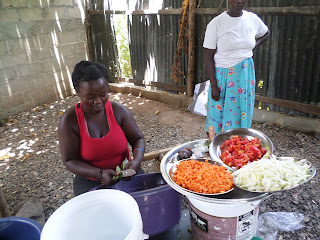Raising Awareness about Nutrition: Dairy and Beef in Nicaragua

Ms. Uribe being interviewed on Nicaraguan television Alexandra MacMillan Uribe, a Nutrition PhD candidate at the University of Wisconsin, traveled to Nicaragua in February 2016 to promote the nutritional value of Nicaraguan beef and milk in the context of a healthy diet to increase awareness and stimulate demand for these products. This was accomplished through several television, radio, and newspaper interviews throughout Nicaragua. Ms. Uribe also trained senior marketing and branding officials at the Nicaraguan Institute for Development (INDE), the Nicaraguan Chamber of the Meat Industry (CANICARNE) and the National Cattleman’s Commission of Nicaragua (CONAGAN) about the nutritional value and potential health benefits of pasture-raised beef and milk. Reflecting on her media appearances, Ms. Uribe shared: “I was asked many questions about beef and some about milk. I had explained that milk was important because it is a rich source of calcium and most national dietary recommendat







